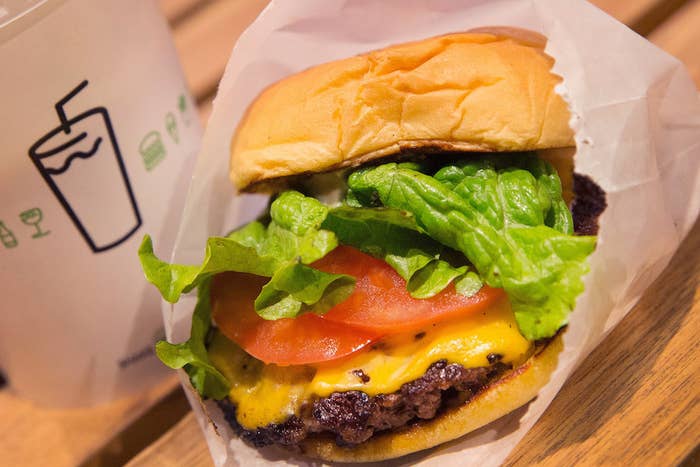
Sales at burger chain Shake Shack have grown spectacularly so far in 2015, aided in no small part by higher prices. And in January, prices are set to rise yet again.
With the minimum wage looking set to rise in more cities around the country over the next few years, Shake Shack is preparing to increase worker pay, CEO Randy Garutti told investors last week. The New York-based company plans to increase prices again at the beginning of 2016, likely a low single-digit percent hike.
Wages are the biggest issue facing the fast food business. Shake Shack — which has 46 U.S. outlets — is among chains including Starbucks, Chipotle, and Panera that have increased prices this year as labor costs tick up.
"Minimum wages continue to increase and we continue to compensate our teams above those minimums," Shake Shack Chief Financial Officer Jeff Uttz said during last week's earnings call. "We intend to continue to offer competitive compensation packages and career development opportunities in order to attract the best talent and to take care of our team for the long-term."
Shake Shack already pays its Washington, D.C., workers $12 an hour (the city's minimum wage is $10.50 and will rise to $11.50 in 2016) and its workers in Texas $11 an hour (the state minimum wage is $7.25).
The chain increased menu prices by 3% in September 2014 and — as the cost of commodities went up — another 3% in January 2015. Higher prices combined with increased traffic to restaurants boosted sales at restaurants open two years or longer by 14.3% from January to September compared with the same period in 2014, exceeding its original outlook as well as other fast food chains' sales. The average domestic Shake Shack now makes $103,000 per week.
It is coming up against pressure, however. The cost of labor is currently 23.7% of sales at Shake Shack, and it expects labor costs to rise faster than the upcoming menu price hike can compensate for. Meanwhile, Shake Shack also expects same restaurant sales growth to slow to just 2.5% and 3% in 2016, down significantly from this year.
Food service is the largest employer of low-wage workers, with an estimated 3.75 million people in the industry making near-minimum wages, according to the Pew Research Center. "We expect rising wages to remain a headwind for us and the entire restaurant industry," Garutti said.
